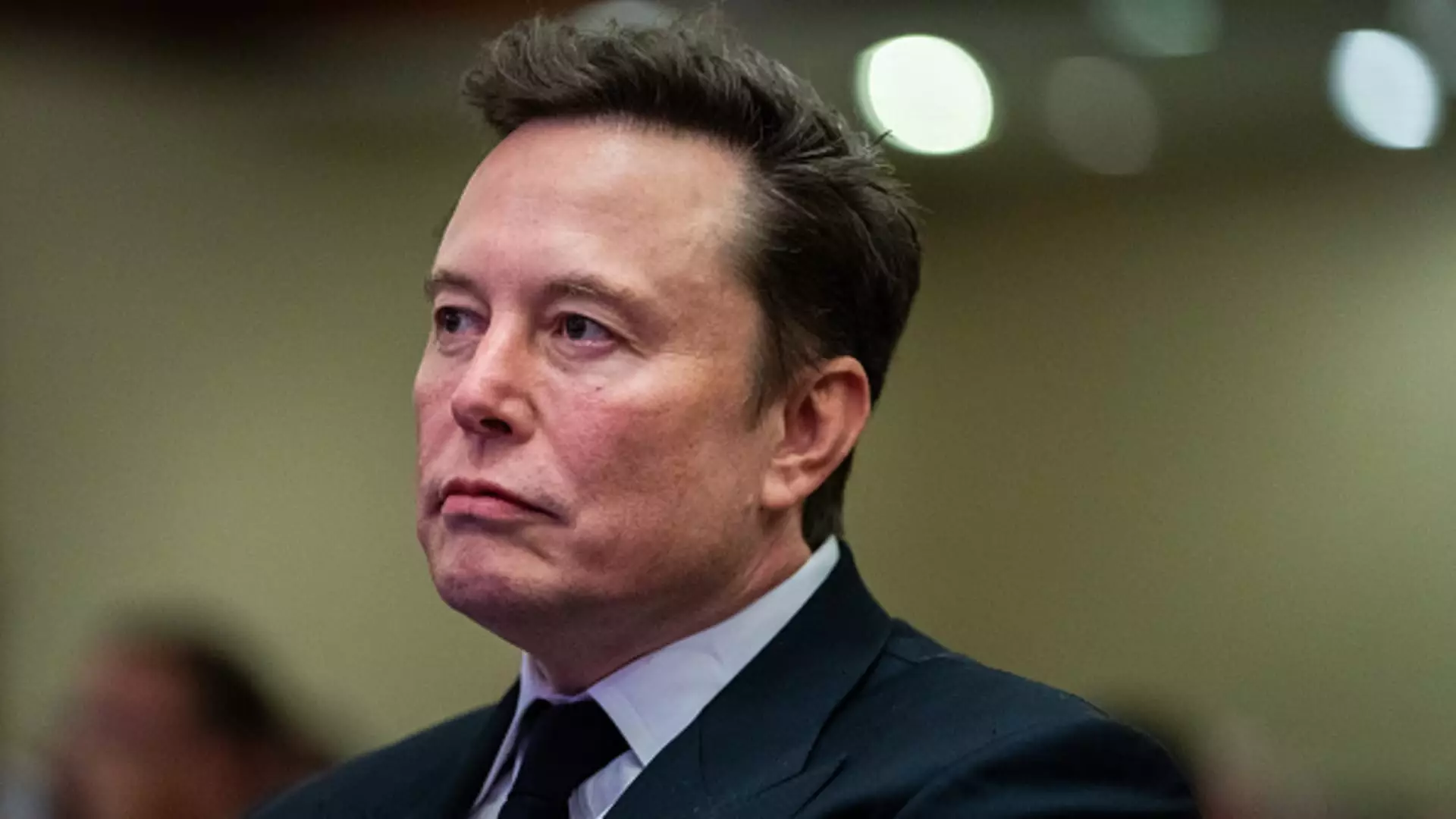In an era where social media platforms are increasingly seen as battlegrounds for ideological clashes, Elon Musk’s management of X, previously known as Twitter, illustrates the turbulent waters between advocacy for free speech and the realities of censorship. Recently, a controversial case unfolded involving a number of conservative accounts that alleged they were robbed of their blue verification badges after openly contradicting Musk’s views on immigration. This incident serves as a crucial lens through which we can examine the paradoxes of free expression that Musk professes to advocate yet seems to navigate with caution.
The shake-up began when at least 14 conservative voices came forward, highlighting their loss of premium features such as content monetization, directly following their criticism of Musk’s pro-immigration stances. Although these accounts remained operational, their diminished capabilities prompted fears about sustaining their online influence. The discontent was palpable, with many users considering Musk’s actions to be a betrayal of his promise to foster an environment that promotes conservative viewpoints. This violation of trust strikes at the heart of the ongoing debate: Are tech giants like Musk truly champions of free speech, or do they wield their power to silence dissenters?
Complicating matters further, Musk’s vague statement about the algorithm’s mechanism, which purportedly penalizes accounts that are often muted or blocked, only intensified the claims of shadowbanning. Critics accused him of subtly manipulating visibility without transparency, raising ethical concerns about how algorithms can be weaponized against specific groups. The essence of the conservations swirls around a critical question: How can a platform that markets itself as a bastion of free speech impose invisible thresholds on its users?
As accusations of censorship spread, many affected users identified with a particular media outlet, ConservativeOG, which provides a nucleus for conservative content. The leader of this group, Preston Parra, articulated the sentiments of many through his evocative language, framing the situation as a “political takedown.” His characterization of Musk as a “Trojan horse” in the conservative circle highlights a profound discontent among members of the right wing who feel their principles are under siege by influential tech executives.
This raises an important examination of group dynamics within ideological factions. The perceived betrayal resonates profoundly within a segment of the political spectrum that already harbors skepticism toward figures like Musk, who, despite their conservative endorsements, have backgrounds and beliefs that occasionally diverge from traditional conservative dogma. Musk’s identity as a South African immigrant further complicates the narrative; his status positions him as both an outsider and a powerful influencer within a movement that often espouses restrictive immigration policies.
The unfolding drama in X’s ecosystem epitomizes how tech moguls increasingly influence political discourse. Conservative loyalty to figures like Donald Trump hinges on the belief that technology should empower their narratives rather than constrain them. Musk’s arrival on the conservative scene initially sparked hope; he claimed to advocate for their marginalized voices. However, as this incident demonstrates, the precarious balance between free speech and corporate governance remains fraught with pitfalls.
The alliance of Musk with Trump in initiatives like the “Department of Government Efficiency” raises further questions regarding the sincerity of these partnerships. As the scrutiny heightens within the far-right factions over Musk and Ramaswamy’s previous stances on immigration, the narrative of ‘us versus them’ within the movement may shift, highlighting the internecine battles brewing within right-wing politics fueled by technology and social media’s evolving role.
As this saga continues to unfold, it becomes increasingly clear that social media platforms like X occupy a central role in shaping political discourse and personal identities. The intersection of ideological beliefs and technological manipulation presents a challenging landscape for users across the spectrum. The controversy surrounding Musk’s treatment of conservative accounts not only raises concerns about freedom of expression but also reflects the inherent contradictions in promoting free speech while wielding gatekeeping power over who gets to be heard. The stakes are high, and as public opinion continues to form around these revelations, the ramifications may redefine the boundaries between user autonomy and corporate control in the digital age.


Leave a Reply